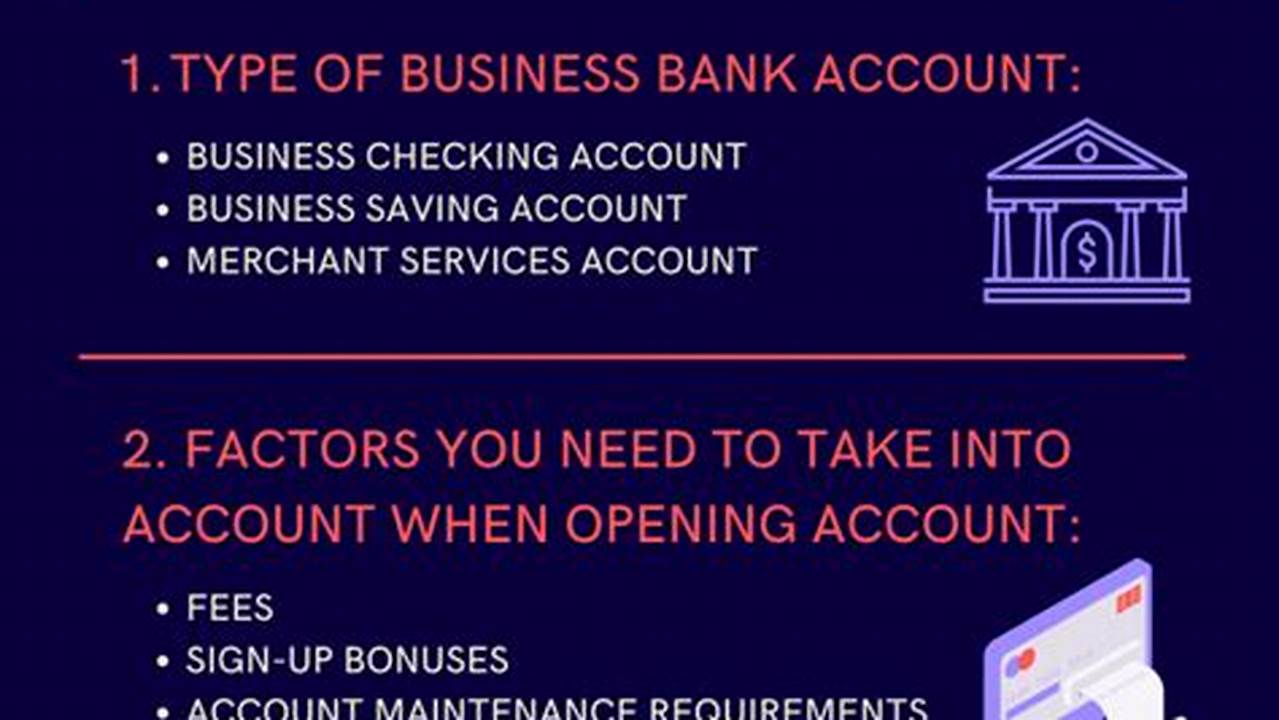Establishing a dedicated financial framework is essential for any enterprise, regardless of size. This structure facilitates efficient financial management, simplifies tax reporting, and enhances credibility with stakeholders. A formal, separate financial system provides a clear delineation between personal and business finances, a critical factor for legal protection and financial clarity.
Essential Components of a Dedicated Business Financial System
Choosing the right financial institution and account type is the first step. Factors to consider include transaction fees, minimum balance requirements, and available online banking features.
Gathering Necessary Documentation
Preparing the required documentation beforehand streamlines the application process. Commonly requested documents include business registration certificates, ownership details, and identification of authorized individuals.
Understanding Account Features
Different account types offer varying features such as check writing capabilities, online bill pay, and debit card access. Selecting an account that aligns with operational needs is crucial.
Meeting Eligibility Criteria
Financial institutions have specific eligibility requirements for business accounts. Understanding these criteria before applying prevents delays and ensures a smooth process.
Preparing a Comprehensive Checklist
Developing a checklist of required documents and steps ensures a thorough and organized approach. This minimizes the risk of overlooking crucial details during the application process.
Understanding Fee Structures
Different banks and account types have varying fee structures for transactions, maintenance, and other services. Carefully reviewing these fees helps optimize cost management.
Maintaining Accurate Records
Meticulous record-keeping is vital for tax compliance and financial analysis. Utilizing accounting software or professional bookkeeping services can simplify this process.
Regularly Reviewing Account Activity
Monitoring account activity for discrepancies or unauthorized transactions helps prevent fraud and ensures financial security. Regular reconciliation is a best practice.
Tips for a Smooth Application Process
Ensure all information provided is accurate and up-to-date to avoid processing delays.
Contact the financial institution directly to clarify any questions or concerns regarding the application process.
Compare offerings from different financial institutions to identify the best fit for your business needs.
Maintain open communication with the bank throughout the application process.
Frequently Asked Questions
What are the typical requirements for opening a business account?
Requirements typically include business registration documents, ownership information, and personal identification of authorized individuals. Specific requirements may vary between institutions.
Why is a separate business account important?
A separate account simplifies accounting, protects personal assets, and enhances business credibility. It also facilitates accurate tax reporting and financial analysis.
How long does it take to open a business account?
The account opening timeframe varies depending on the institution and the completeness of the application. It can range from a few days to several weeks.
What are the benefits of online banking for businesses?
Online banking offers convenient access to account information, facilitates transactions, and simplifies financial management tasks. It also often includes features like bill pay and account alerts.
Can I open a business account if my business is not yet registered?
Requirements vary by institution, but some may allow accounts to be opened with alternative documentation if the business is not formally registered. Contacting the institution directly is recommended.
What types of business accounts are available?
Common types include checking accounts, savings accounts, and merchant accounts. The best choice depends on the specific needs of the business.
Establishing a dedicated financial framework is a foundational step for any business. It provides a structured approach to financial management, enhances credibility, and supports long-term growth and sustainability.



